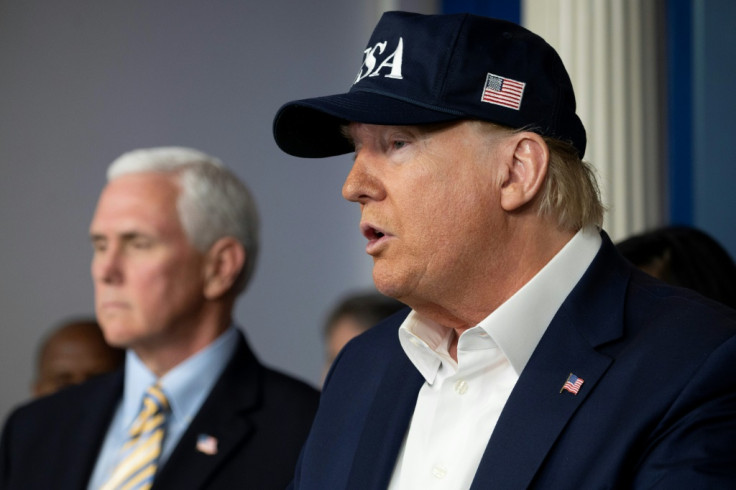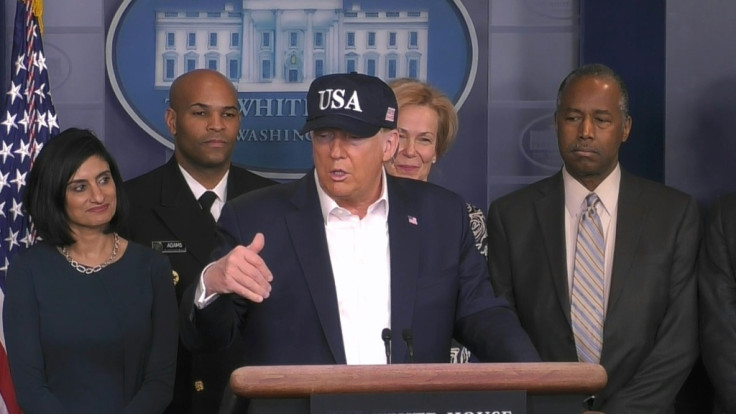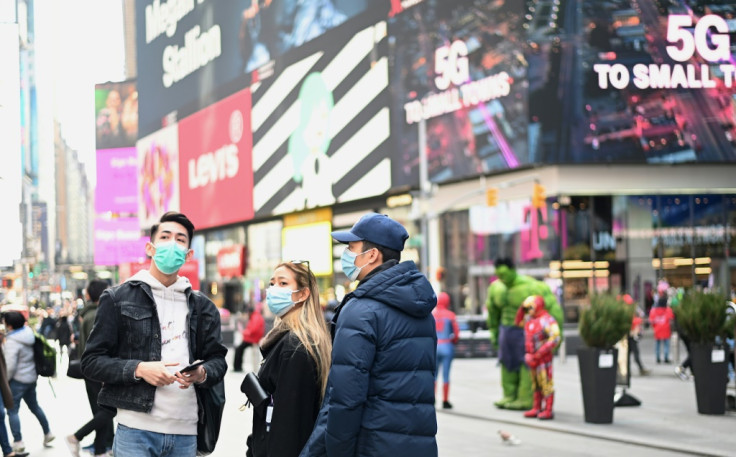Rate cut, shutdowns and curfew: US ramps up virus response
Faced with an economic shutdown, the Fed announced a raft of drastic emergency measures to shore up confidence and keep the financial sector running.
America ramped up its response to the coronavirus pandemic Sunday as the Federal Reserve slashed rates to stem the fallout, and bars and restaurants were told to close or go take-out only from normally-buzzing New York to Chicago and California.
The fast-spreading pandemic has claimed almost 70 lives in the United States, disrupting every walk of life as Americans -- watching Europe plunge into lockdown as panic-buying spreads at home -- brace for what is to come.
Faced with an economic shutdown, the Fed announced a raft of drastic emergency measures to shore up confidence and keep the financial sector running, including cutting the key interest rate to 0-0.25 percent.
President Donald Trump, addressing a now-daily briefing of the White House task force on the crisis, praised the "phenomenal" action by the Fed, and sought a reassuring tone even as he pleaded with Americans to stop stripping store shelves bare.
"Relax. We're doing great. It all will pass," the president said.

But Anthony Fauci, the country's leading expert on infectious diseases, was blunt in telling Americans to prepare for hard times ahead, saying it was vital the country made the right choices.
"The worst is ahead for us," he told the briefing. "We have a very, very critical point now."
Underscoring the urgency of containing the virus, New York's Mayor Bill de Blasio announced that the city's famed bars and restaurants would be restricted to take-out or delivery, and that nightclubs, movie theaters, theaters and concert must close starting Tuesday.
"This is not a decision I make lightly," De Blasio said in a statement. "These places are part of the heart and soul of our city. They are part of what it means to be a New Yorker. But our city is facing an unprecedented threat, and we must respond with a wartime mentality."
Schools, museums, sports arenas and entertainment venues have already closed in many US states, but St Patrick's Day celebrations still filled bars and restaurants over the weekend despite pleas to limit socialising, prompting calls for more aggressive action.
Reinforcing the message, the Centers for Disease Control and Prevention issued new nationwide guidance recommending that organisers cancel or postpone any events gathering 50 people or more -- with the exception of day-to-day activities in education or business.

In the strongest measure yet taken on American soil, the US territory of Puerto Rico ordered a 9:00 pm to 5:00 am curfew with immediate effect -- along with the closure of malls, movie theaters, concert venues, gyms and bars.
And in the largest state of California, Governor Gavin Newsom called for bars and nightclubs to close, and asked all people over the age of 65 to self-isolate at home.
The governor of Illinois announced that all bars and restaurants in the state would close until March 30.
"The time for persuasion and public appeals is over. This is not a joke. No one is immune to this," Governor JB Pritzker told a news conference.

Massachusetts also closed bars and restaurants, while party-town New Orleans issued guidelines halving the capacity of bars and nightclubs, and Washington State said restaurants would be take-out only.
Joe Biden, frontrunner to be the Democratic contender taking on Trump in November elections, said that in Trump's shoes he would call the US military out to help tackle the outbreak.
Chaotic scenes erupted at Chicago's O'Hare International Airport overnight, as well as New York's John F. Kennedy Airport and in Dallas, as Americans returning from coronavirus-hit countries overwhelmed authorities attempting to process the surge.
US airports have been hit with a flood of Americans since restrictions on travel from Europe ordered by Trump took effect at midnight Friday. The ban will extends Tuesday to Britain and Ireland.
Frustrated passengers complained of hours-long lines, crowded and unsanitary conditions in the system for screening people for symptoms of the virus.
Waiting times improved on Sunday, but airlines are slashing their schedules.
American Airlines said it would reduce all international capacity by 75 percent until early May.
The airport bottlenecks were the latest evidence of continuing turbulence in the administration's response to a pandemic that started in China in December and has since spread worldwide.
In the United States, 68 people have died and more than 3,600 have been infected, according to a running tally kept by Johns Hopkins University.
Addressing Sunday's briefing, Vice President Mike Pence said free testing was now available in all 50 states and that "more than 2,000 labs" were equipped to process tests "much more rapidly, at a much higher volume."
Trump, who had played down the risks of infection early on, has tested negative for the virus, days after potentially being exposed to it.
The White House is now performing systematic temperature checks on anyone in close contact with the president.
Copyright AFP. All rights reserved.
This article is copyrighted by International Business Times, the business news leader




















